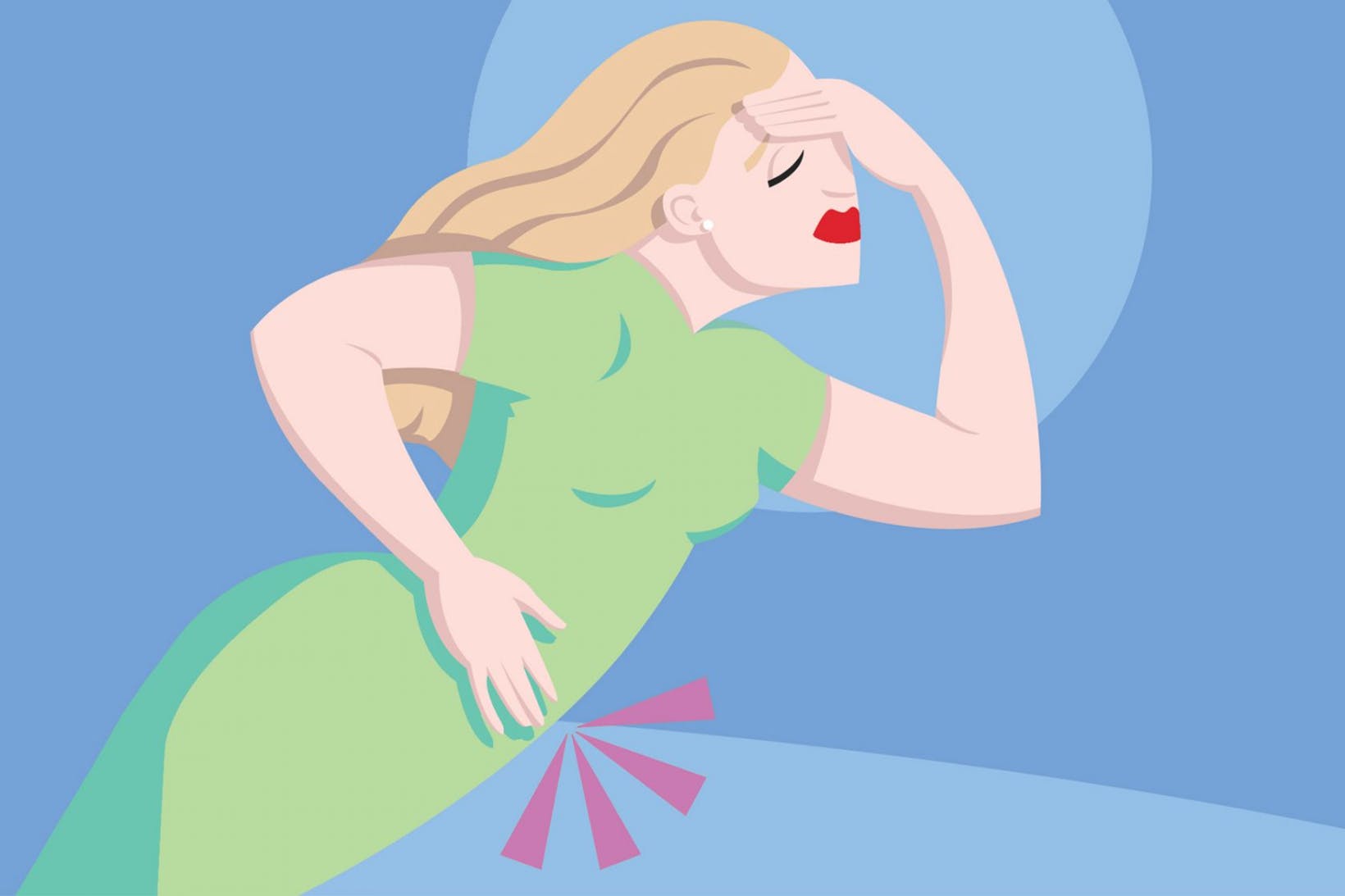
If you live with all kinds of gut-related symptoms, it’s time to do something about it. Poor gut health doesn’t just create discomfort, it can also scupper your fitness goals.
Gut health is forever something that we seem to hear about. Keep the bacteria in your gut happy and you can look forward to feeling happier, less bloated, and being less prone to disease. Did you know, however, that the strength of your gut can determine how strong you feel and how powerfully you’re able to perform?
So, what is the gut and how can improving our gut health make us stronger at the gym?
“The gut plays a vital role in absorption and utilisation of essential nutrients that are needed all around the body for many different functions. This can include energy production and metabolism,” explains allplants’ nutritionist Ally Findlay.
You may also like
Caramel nougat bar recipe: give yourself a protein boost with this tasty snack
We all know that nutrition plays a big part in athletic performance and “with a weakened or unhealthy gut, you’re less able to fully absorb the nutrients in the food you consume, which could have a knock-on effect on your progress and health in general.” But it’s not just absorption that’s put at risk by an unhappy gut.
THAT (BAD) GUT FEELING
Our guts are always busy. If they’re not absorbing nutrients to keep us nourished, energised and strong, they’re supporting the immune system. A “healthy” gut has a rich array of gut microbiota (the millions of microorganisms within your digestive tract) so that it can carry out all of its functions properly. That means having lots of different kinds of bacteria; the more diverse the microbiota, the stronger the gut.
There are lots of factors that lead to poor gut health, including:
- High-stress levels (emotional and physical)
- A diet high in processed and refined foods (especially foods containing lots of additives and preservatives)
- Too much exposure to antibiotics or other drugs
Given how important our guts are, it’s pretty noticeable when things go wrong. Common symptoms to look out for are bloating and gas, which Aly says “can signal high levels of bad gut bacteria”. Food intolerances can also be a sign that the gut is not functioning correctly; you may not be able to break down food correctly and that causes reactions in the body.
Aly also warns: “Poor gut health can inhibit nutrient absorption and can affect blood sugar levels – which can cause weight gain or loss. Research has also shown that gut health is closely associated with the appearance of eczema.” Oh, and because gut bacteria is linked to the immune systems, gut problems can negatively impact immune health too – not ideal in the current climate.

STRONG BODY, STRONG GUT
Research shows that regular aerobic exercise can actually beneficially change your gut bacteria and microbiome.
A 2019 study published in the journal Experimental Physiology suggested that cardio fitness might influence bacterial diversity. Scientists recruited 37 people who had been successfully treated for breast cancer (cancer treatment typically has a negative impact on metabolic health, which is why they chose this cohort). The group was told to do various exercises so that their cardiorespiratory fitness and energy expenditure could be tested, before having their fecal samples analysed. The study concluded that those people with higher cardiorespiratory fitness tended to have a more diverse bacterial population in the gut, compared with those with a lower level of cardio fitness.
Another study found that exercise promotes the growth of bacteria which produce the fatty acid, butyrate. Butyrate is thought to reduce inflammation (reducing the risk of issues like inflammatory bowel disease and insulin resistance), as well as help to heal the gut lining. But you don’t have to do HIIT or sprints to reap the gut benefits. Women who do at least three hours of light exercise (such as a brisk walk) per week have been found to have increased levels of bacterias Faecalibacterium prausnitzii (a known anti-inflammatory), Roseburia hominis (of which people who live with IBD often have low levels), and Akkermansia muciniphila (helps to maintain our gut lining and promote metabolic health), compared with more sedentary individuals.
You may also like
Firey bean stew recipe: give this iron-rich, immunity-boosting meal a go
If you’re a runner or cyclist, you’ve got a reason to feel good: researchers have shown runners and cyclists produce more endocannabinoids in their blood, which provides some pain relief and improves mood. Endocannabinoids are involved in controlling gut inflammation and protecting our gut barrier. What’s not yet been established, however, is how short-lived these changes are or whether that boost can lead to long-term changes in the gut microbiome. Given that “runner’s stomach” is such a thing (ask anyone who’s trained for a long-distance event and they’ll tell you that their guts have become incredibly sensitive), however, surely there’s a limit to how much movement is good for a gut?
Our digestive systems may be able to handle a lot but ultimately, they aren’t designed to experience the kind of incessant stress that hours of running can create. When we run or engage in lots of high-intensity activity, our blood flow moves away from the digestive system to the cardiovascular system. That then can trigger an inflammatory response in the gut.
“During intensive training (as a result of physical stress) our bodies can suffer from intestinal distress,” says Michelle den Hollander, Z-Ora nutritionist and hormone expert. “This ‘pain’ can be anything from little sting inside the tummy to bloating and even nausea, but usually this only lasts for a short period of time and shouldn’t be a regular occurrence.”

That level of physical stress on the body, Michelle explains, can cause the body to release hormones that promote the growth of “bad” bacteria and other inflammation-promoting substances. “If you are training intensively, you may also experience a ‘leaky gut’ where the intestinal lining opens up, making room for bad bacteria to leave the intestinal canal and start moving around your body. This compromises the immune system significantly and needs to be treated as soon as possible.”
The key, she says, is to listen to your body as you know your body best – “by ignoring signs like a bloated belly or pain, you can make things worse. So if any of these symptoms happen regularly, reduce your exercise impact or take a day off and if it disappears and does not come back then continue.”
But it’s not just the stress that comes with running, it’s also the dehydration. If you don’t come up with a plan for taking on fluids while you run long or commit to rehydrating once you finish your work out, you might run into further digestive issues. Aly explains that the large intestine soaks up the water it has access to, making your digestion slow down – resulting in constipation. If you are experiencing gut related problems when exercising, Aly says that “there is likely another factor involved and it is worth checking in with your doctor.”
POOR GUT, POOR PERFORMANCE
It’s not just that overtraining can impact gut health; poor gut health can impact training and training goals. Poor gut health, bloating and inflammation “will definitely get in the way of training and thus hinder you from your fitness goals,” Michelle warns. “Gut health is often underestimated when in fact, it’s a big factor to consider when you want to get fit.”
She explains that our gut not only helps with digestion, it also plays a role in our metabolism, immune and hormonal system and even our cognitive functions – all of which affect our physical performance. “It has also been proven that our gut breaks down lactic acid that is needed to build up muscles, so if your gut health is poor it won’t be able to work effectively to help your strength and muscles grow.”
If you’re used to feeling bloated during or after a run, you might be tempted to change how and when you fuel. While the timing of when you eat won’t impact your gut health itself, food can get in the way during training if you leave too little time between a meal and a workout. Choose an easily digestible snack like a banana or bread and nut butter before a workout but give yourself an hour between a meal and movement.
You may also like
This overlooked aspect of our nutrition is actually key to healthy digestion
7 TIPS FOR A HAPPIER GUT
- Eat the rainbow. There’s no one hero food but a wide range of natural foods will lead to a diverse microbiota. Having a diet of whole foods such as fruits and veg is the best way of nourishing a healthy gut. They are rich in fibre and promote the growth of beneficial gut microbes.
- Fill up on fibre. There are two different types of fibre. Most whole foods have both soluble and insoluble fibres. Insoluble fibre – the roughage like stalks, seeds, skins of foods – helps to move things along and keep us regular, which is key for good gut health. Water-soluble fibre binds with water and creates a gel that can feed healthy gut bacteria. It can also help to reduce cholesterol.
- Prioritise probiotics. Prebiotics are fibrous foods that when digested, ferment in the gut and feed the healthy bacteria, promoting the growth of more healthy gut microbes. Prebiotic rich foods are very simple foods such as onions, garlic, bananas, oats, legumes and whole grains.
- Enjoy a side of probiotic. Fermented foods including kimchi, sauerkraut and kombucha are rich in live bacterial cultures which feed the healthy bacteria in the gut. People can often be sensitive to these types of food, so if you are increasing the amount of them in your diet, make sure to do so slowly so the body has time to get used to them.
- Calm it down. Too much stress or anxiety (which can also be caused from exercising too intensely!) can cause your digestive system to go into overdrive and your body to go into fight or flight mode. This means that your gut health will decrease, your digestion will be affected and you may suffer from constipation. Try out slow and grounding activities like yin yoga, meditation, reading or walking.
- See your GP. If gut issues persist, it is worth trying to find out if you have any food intolerances that could be causing these reactions.
- Hydrate. Water is a key component of digestion and ensures the proper absorption of nutrients. Water also keeps food moving through the intestines. If you don’t have enough water in your body, water is reabsorbed from the colon often leading to hard stools and constipation.
Want more simple and nutritious recipes? Make sure you check out the rest of our meal ideas in the SWTC library.
Images: Getty
Source: Read Full Article